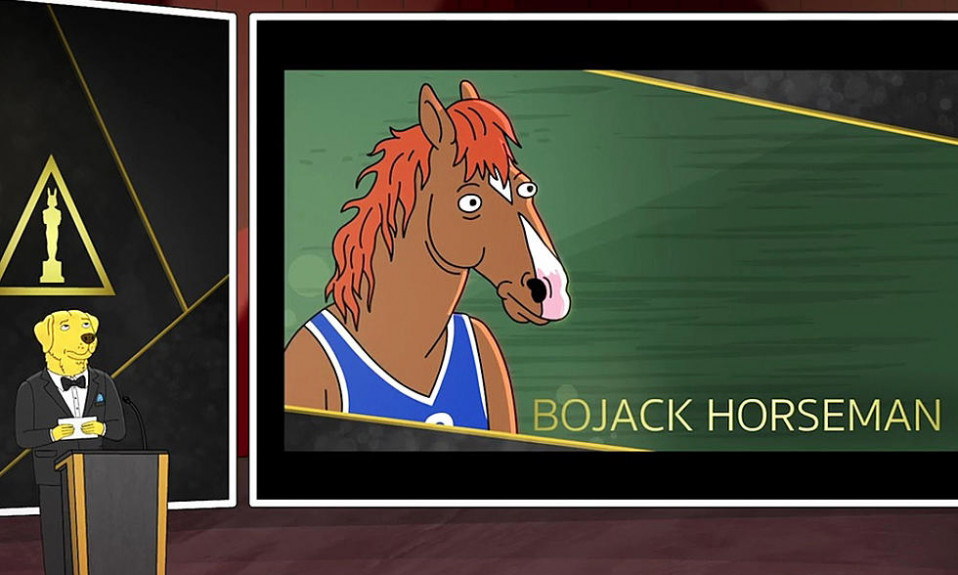Millions of people around the world watch film awards ceremonies; to root for their favourite, see a glimpse of glamour or just to see what is considered the “best” films of the year. But with viewership for even the Oscars seemingly on the decline what is the reason for this?
The Statistics

In 1998 almost sixty million Americans watched the Oscars, the highest ever ratings for the awards show, but in 2022 it was down to sixteen million, and the trend is heading downwards. The Emmys, America’s biggest television awards ceremony, had a viewership of around six million in 2022, almost half the 2016 viewership. The BAFTAs actually seem to be bucking this trend with a recent increase in viewers (around 3 million for the latest ceremony). The Screen Actors Guild (SAG) Awards were this year broadcast on Netflix’s YouTube channel, after years of declining viewing figures, with less than a million watching in 2021.
Why?

There are many potential reasons for these declining ratings, relating both to changes in the film industry and television viewing habits. First of all, the Oscars were once event television – like the FA Cup (or Superbowl), something that people enjoyed watching en masse at the same time and event television is seemingly a thing of the past. People have too many ways to watch television, no longer restricted to a small number of channels. I do what I think many people do – the next day look up the winners and watch clips online, which does nothing for ratings.
Award shows were once a great opportunity to see actors being – more or less – themselves, not playing characters, but that is hardly the case now. Most actors have a strong social media presence, and an actor who doesn’t is flagged as somewhat unusual. In a similar way some people argue there are no movie stars anymore, not like there used to be, where the involvement of an actor would almost guarantee success, nearly universally liked and admired. Tom Cruise may be an actor who somewhat fits the bill but is hardly universally admired.
Perhaps increasingly there is also a feeling that making such a fuss about these awards shows is a little silly. By all means have awards for those in filmmaking but is the world really supposed to stop to watch them get their awards? Then there are questions about how “valid” these award ceremonies are – the Oscars are seen as the biggest film awards in the world, and it is in way assumed that the Best Picture Oscar winner is the best film of that year…but is it? The Academy has its own biases and many films are called Oscar-Bait, films that are seemingly made to tick boxes for what the Academy likes and this before dealing with issues like the OscarsSoWhite hashtag from 2015. Is the Oscars a genuine reflection of achievement in filmmaking or a select group within an industry patting themselves on the back?

What is perhaps the single biggest issue is that cinema – like most forms of art and culture – is very splintered. There are very few films that catch the attention of the majority of people; for example Best Picture Nominee Avatar: The Way Of Water was the biggest-grossing film of 2022, but the film that seemed to have the most cultural impact was Glass Onion, now even if this merely reflects different social media bubbles it still demonstrates that there isn’t a single cultural landscape for the Oscars to comment on. Also, Oscars, don’t nominate Avatar: The Way of Water for Best Picture, especially when Nope didn’t get a Best Picture nomination, or in fact, ANY Oscar nominations.
A few years ago the number of Best Picture nominations was increased to potentially ten, which was good, and it seemed in response to great films that didn’t fit the Oscar stereotype of a great film being nominated. The Shape Of Water – a film about a love story between a human woman and a fish “monster” won Best Picture, Parasite became the first foreign-language film to win Best Picture which shows an acceptance of a greater variety of movies but shows that it is becoming increasingly difficult to determine what is the “Best Picture” of the year. Of course, this was probably always impossible but it’s increasingly being shown up as a farce.
Ultimately the decline in audience for these events is likely to do with factors completely outside the control of the organisations behind them with the changing nature of media consumption and appreciation being the real cause.
Also Read: Parasite Director Bong Joon-Ho Once Described The Oscars As “Very Local” Does He Have A Point?













